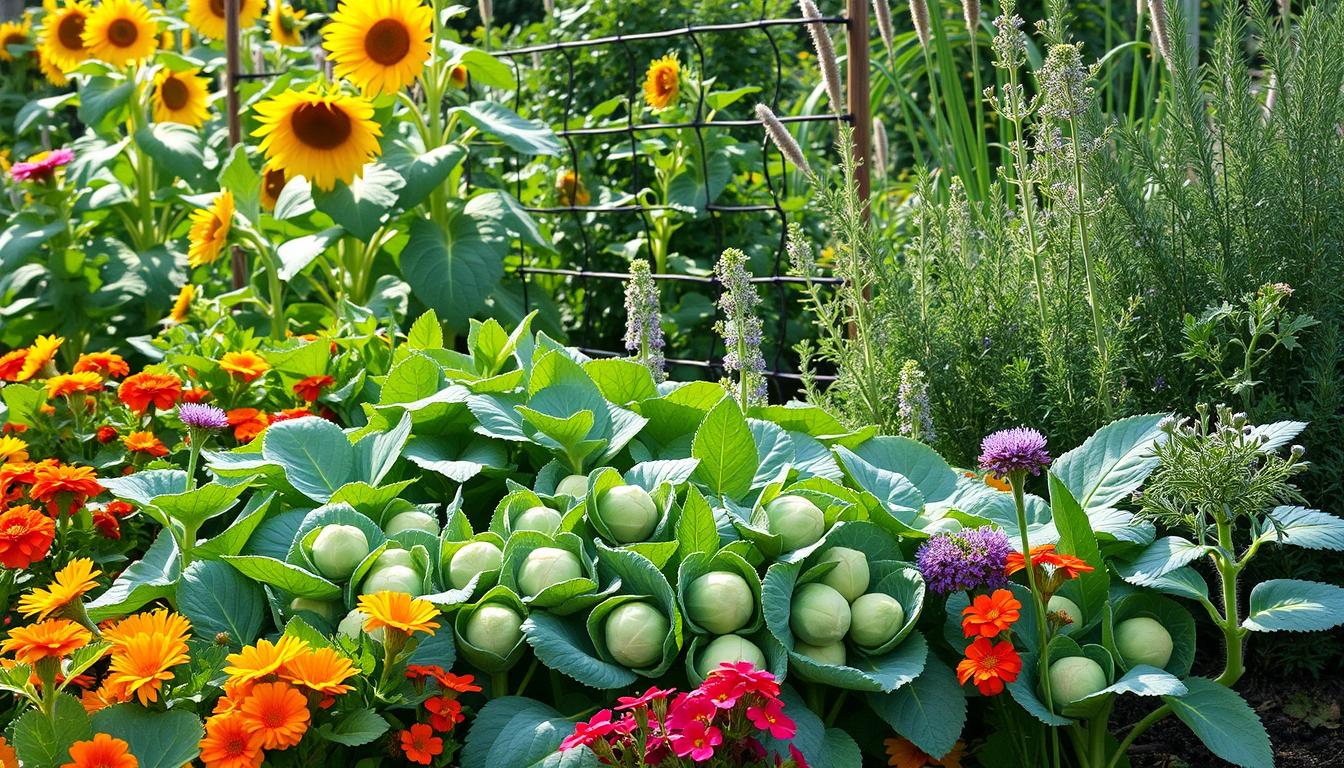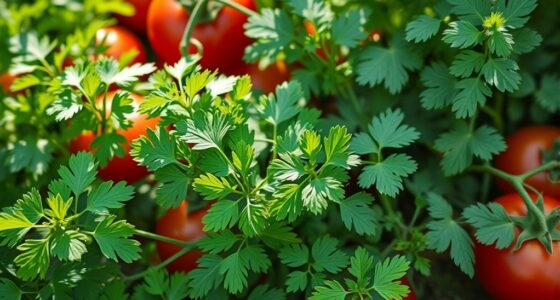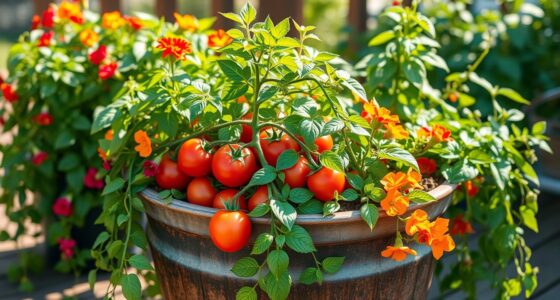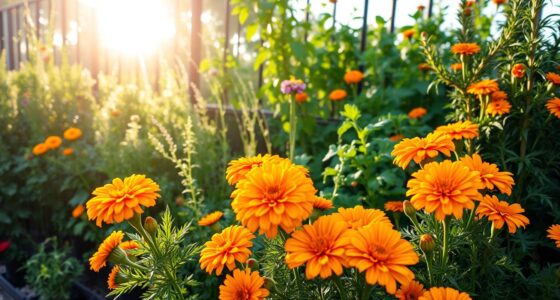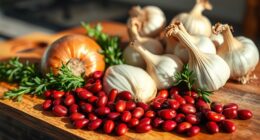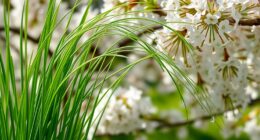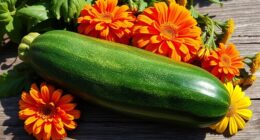Have you ever wandered through your garden, admiring the vibrant greens, and felt a sense of connection with each plant? As you nurture your crops, especially those beloved Brussel sprouts, you start to understand the delicate relationships that exist in nature. Companion planting is not just a gardening technique; it’s an art that enhances not only the growth of your plants but also your satisfaction as a gardener. By thoughtfully selecting the best companion plants for Brussel sprouts, you can create a harmonious ecosystem that supports pest resistance and boosts the overall health of your garden. Let’s dive into discovering how these Brussel sprouts companion plants can transform your gardening experience.
Key Takeaways
- Companion planting supports the growth and health of your Brussel sprouts.
- Choosing the right plants enhances pest resistance.
- The relationships between plants can improve soil health.
- Strategic pairing can lead to a lush, bountiful harvest.
- Understanding plant compatibility is key to successful gardening.
- Experimenting with companions can teach you valuable gardening lessons.
Understanding Brussel Sprouts and Their Needs
Brussel sprouts are fascinating members of the Cruciferae family, known for their unique taste and nutritional benefits. These small, leafy buds grow on tall stems, offering a delightful addition to many dishes. Understanding their specific characteristics can help you cultivate a thriving crop.
What Are Brussel Sprouts?
Brussel sprouts are a type of cabbage, cultivated for their edible buds. They typically measure around one to two inches in diameter and can be harvested when they change from green to a deeper shade. Rich in vitamins and minerals, these vegetables serve as a fantastic source of dietary fiber and antioxidants, making them a healthy choice for your meals.
Growing Conditions for Brussel Sprouts
To achieve optimal growth, it is crucial to be aware of the ideal brussel sprouts growing conditions. These vegetables thrive in cooler temperatures, usually between 60 to 65 degrees Fahrenheit. Full sunlight during the day allows them to develop properly; however, they can tolerate partial shade.
The soil should be well-draining, rich in organic matter, with a pH level between 6.0 and 7.0. Amending the soil with compost or aged manure can improve nutrient availability. Regular watering is essential, as moisture helps maintain the integrity of the plant.
Common Issues With Brussel Sprouts
While growing brussel sprouts can be rewarding, gardeners should be prepared for some common issues with brussel sprouts. Pests such as aphids, cabbage worms, and flea beetles often invade, causing damage to the leaves or buds. Diseases like downy mildew or black leg can affect your crop’s health, leading to stunted growth or poor yield. Regular monitoring and preventive measures can help manage these challenges effectively.
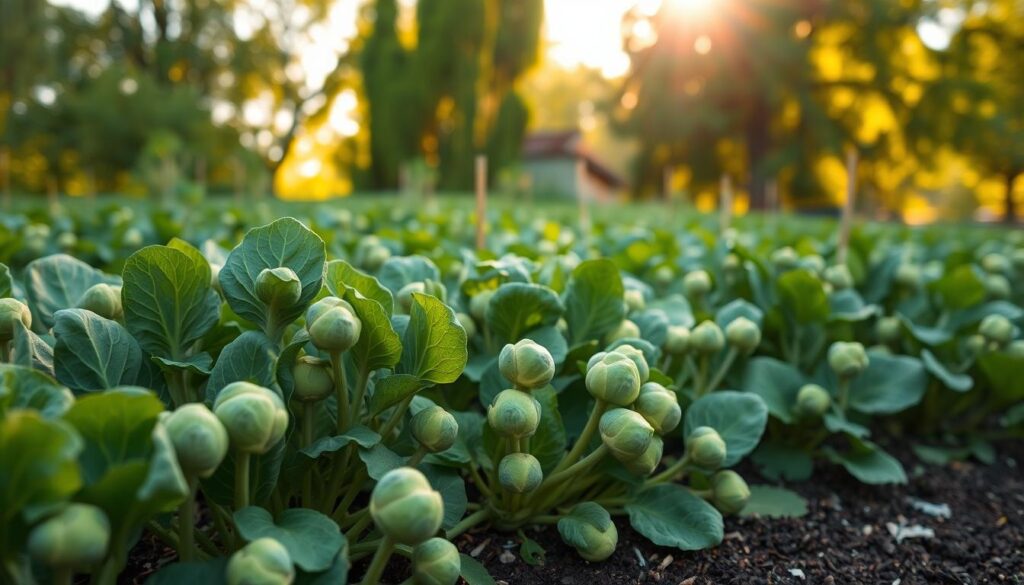
Benefits of Companion Planting
Companion planting offers a range of advantages that can significantly enhance your garden’s health and productivity. By strategically placing certain plants next to each other, you create an ecosystem that thrives. This approach aligns perfectly with our brussel sprouts companion planting guide, showcasing how thoughtful pairings can lead to improved yields and plant vitality.
What Is Companion Planting?
Companion planting refers to the practice of growing different plants in close proximity for various benefits. These can include attracting beneficial insects, repelling pests, and even enhancing flavor. Embracing this technique not only makes gardening more sustainable but maximizes the efficiency of your growing space.
Why Use Companion Plants?
Adopting companion plants can lead to multiple benefits of companion planting. For instance, certain herbs and flowers not only deter troublesome pests but also promote the growth of neighboring crops. When growing brussel sprouts, pairing them with compatible species can result in healthier plants and a more bountiful harvest.
Enhancing Soil Health with Companions
Utilizing companion plants can significantly enrich soil health. Some plants contribute nutrients to the soil, while others can help improve soil structure and aeration. When used alongside brussel sprouts, these beneficial companions help create a rich environment that supports robust growth and resilience against diseases.
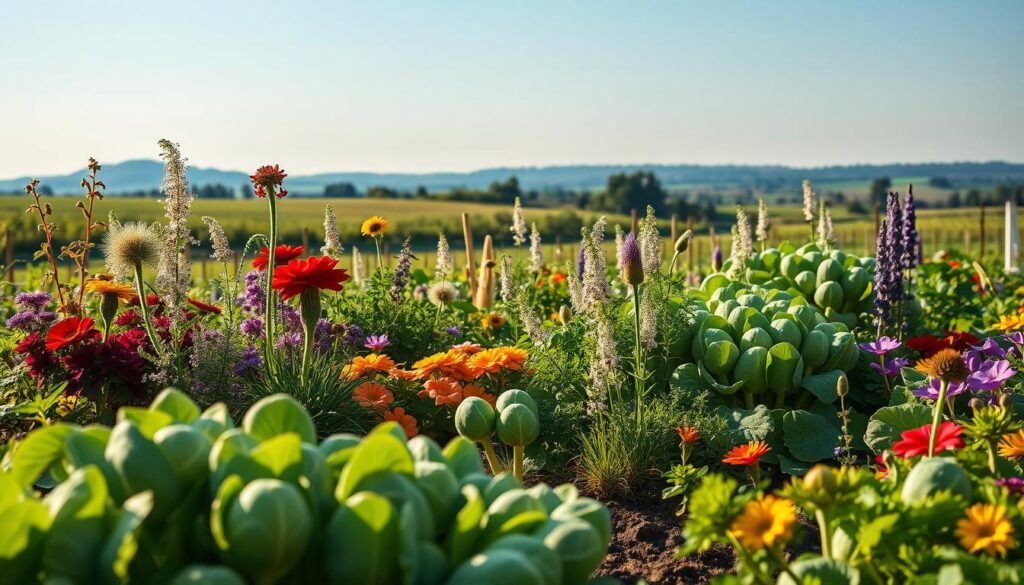
Top Companion Plants for Brussel Sprouts
Choosing the right companions for your Brussel sprouts can significantly impact their growth and health. Implementing the right brussel sprouts interplanting suggestions will enhance your garden’s productivity and encourage a thriving ecosystem. Here are some top choices for companion plants that grow well with Brussel sprouts.
Aromatic Herbs to Consider
Aromatic herbs like mint and dill make excellent companions. These herbs not only add flavor to your dishes but also help in deterring pests that may threaten your Brussel sprouts. Mint, with its strong aroma, keeps unwanted insects at bay, while dill attracts beneficial insects such as ladybugs and lacewings.
Nutrient-Rich Vegetables
Incorporating nutrient-rich vegetables like carrots and peas is beneficial when growing Brussel sprouts. Carrots are known to improve soil structure and enhance nutrient availability. Peas add nitrogen to the soil, which is essential for the healthy growth of Brussel sprouts. These plants that grow well with Brussel sprouts work harmoniously to support overall plant health.
Flowering Plants that Attract Pollinators
Flowering plants such as marigolds and nasturtiums contribute to attracting pollinators and beneficial insects. Marigolds, for instance, repel nematodes and unwanted pests while bringing in pollinators that help with the reproduction of your crops. Nasturtiums not only serve as colorful additions to your garden but also provide shelter for predatory insects that keep harmful pests in check.
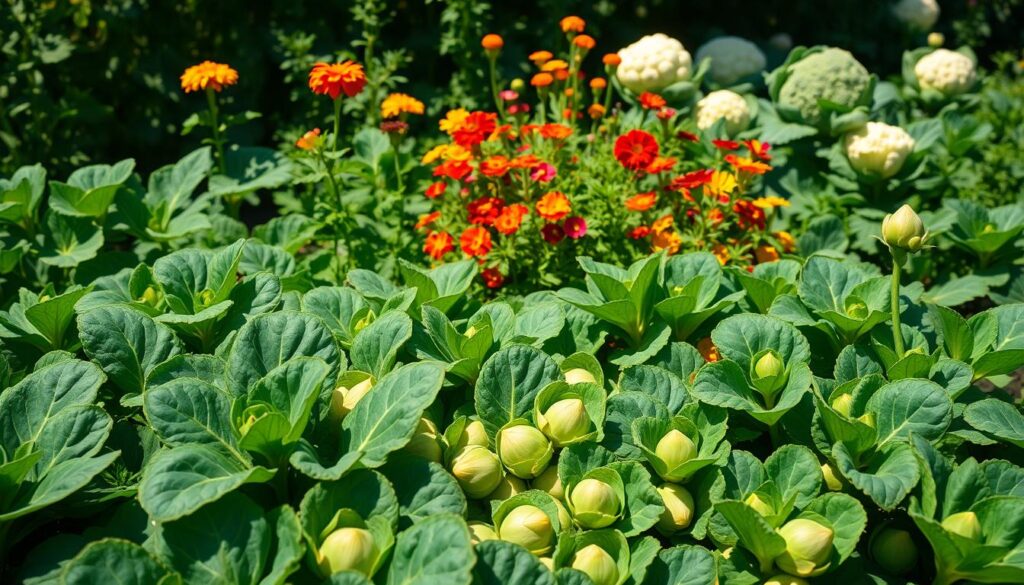
By integrating these companion plants into your Brussel sprouts garden, you create a more diverse and productive environment. Observing these brussel sprouts interplanting suggestions can lead to higher yields and healthier crops for your gardening endeavors.
Best Herbs to Pair with Brussel Sprouts
Integrating herbs into your garden can significantly enhance the growth and flavor of your brussel sprouts. According to the brussel sprouts companion planting chart, certain herbs not only elevate culinary experiences but also promote healthy plant development. Below are some of the best herbs for brussel sprouts and their respective benefits.
Rosemary’s Benefits
Rosemary stands out as a robust herb that thrives alongside brussel sprouts. Its strong aroma deters many pests, protecting your delicate plants. This herb enhances the flavor of brussel sprouts, making them even more delicious. When planting rosemary, position it to maximize its sun exposure, leading to a flourishing garden.
Thyme’s Pest-Deterrent Qualities
Thyme is another excellent choice for companion planting. Known for its pest-repelling qualities, this herb helps in keeping harmful insects at bay. Additionally, thyme aids in suppressing weeds, allowing your brussel sprouts to receive the nutrients they need without competition. Regular trimming will encourage robust growth and healthy foliage.
Sage as a Flavor Enhancer
Sage complements brussel sprouts beautifully, both in the garden and on the plate. Its aromatic leaves can elevate the flavor profile of various dishes featuring brussel sprouts. When paired, sage supports robust growth, allowing these vegetables to flourish together. Make sure to plant sage in a well-drained area to fully harness its benefits.
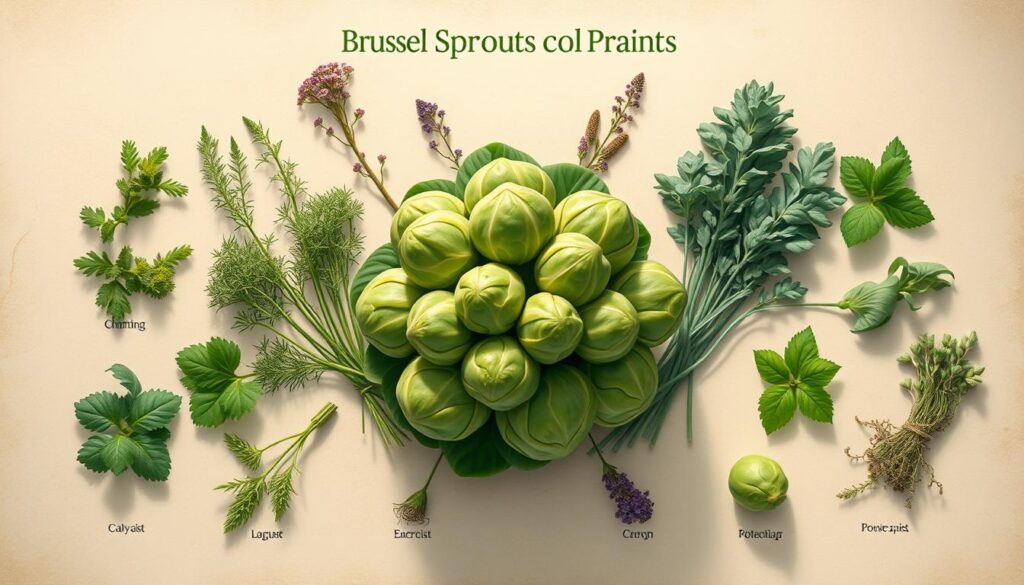
| Herb | Benefits |
|---|---|
| Rosemary | Enhances flavor, deters pests |
| Thyme | Repels pests, suppresses weeds |
| Sage | Flavor enhancement, promotes growth |
Ideal Vegetables to Grow Alongside Brussel Sprouts
Pairing the right vegetables with Brussel sprouts can optimize your garden’s productivity and health. Understanding which plants work well with your crops can enhance growth and deter pests. Here are some of the ideal vegetables with Brussel sprouts that you should consider.
Carrots: A Perfect Pair
Carrots thrive in the space beneath Brussel sprouts. As the taller plants provide shade, they help maintain cooler soil temperatures, which benefits the carrots. Their differing root structures allow them to coexist without competing for nutrients, making carrots among the best companion plants for Brussel sprouts.
Potatoes: Mutual Benefits
Potatoes and Brussel sprouts share a symbiotic relationship. Their roots grow at different depths, which means they don’t compete for the same nutrients. Planting them together can improve overall crop yield, making potatoes ideal vegetables with Brussel sprouts.
Onions: Pest Control and Flavor
Onions offer both flavor enhancement and pest resistance when paired with Brussel sprouts. They repel common garden pests such as aphids and cabbage worms, helping to protect your plants. Their strong aroma can deter unwanted visitors, positioning onions as one of the essential best companion plants for Brussel sprouts.
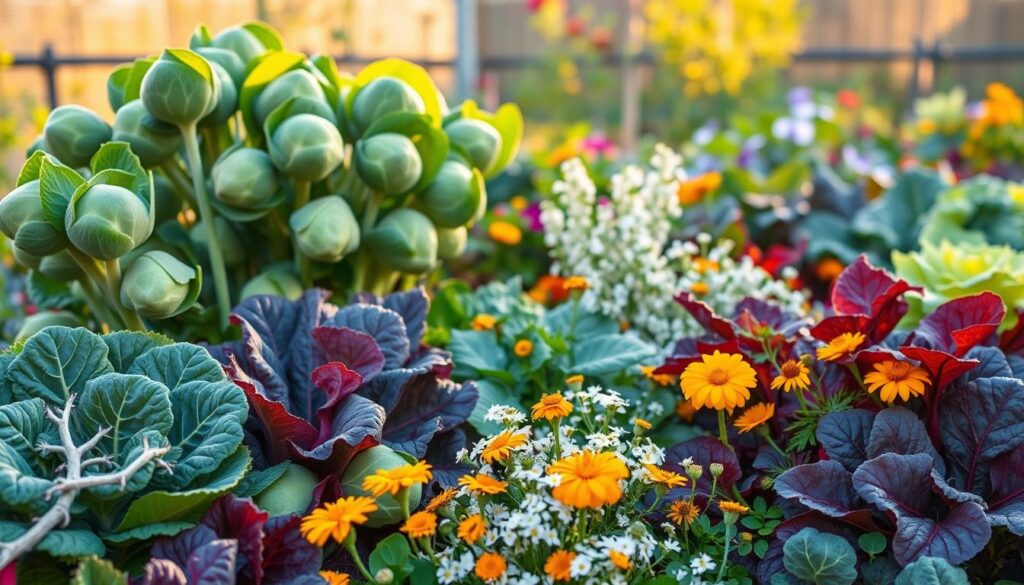
Attracting Beneficial Insects
Creating a thriving garden involves attracting beneficial insects that contribute to the health of your plants. Specific flowers play a crucial role in drawing pollinators and natural pest predators. By incorporating companion plants for brussel sprouts, you enhance the overall biodiversity and support a balanced ecosystem.
How Flowers Can Help
Flowers function as beacons for beneficial insects, providing both nectar and pollen essential for their survival. When you plant a variety of flowers intermixed with brussel sprouts, you not only attract bees but also ladybugs and lacewings that feed on common pests. Planting flowers in proximity to your vegetables can greatly increase the effectiveness of these natural allies in your garden.
Examples of Good Flowers
- Marigolds: These flowers repel nematodes and other pests while attracting pollinators.
- Yarrow: Known for its ability to draw in predatory insects, yarrow provides benefits for overall pest management.
- Cosmos: Easy to grow and brightening your space, cosmos attract various beneficial insects with their abundant blooms.
- Borage: This herb is excellent for bees and serves as a great companion plant as it enriches the soil.
Timing Your Planting for Bees
Timing plays a vital role in maximizing the benefits of attracting beneficial insects. Plant flowers early in the spring to provide a food source as the bee population emerges. Ensuring that blooming periods overlap with your brussel sprouts’ growth will encourage pollinator traffic throughout the season. A harmonious balance of planting times will yield healthier plants and a more vibrant garden.
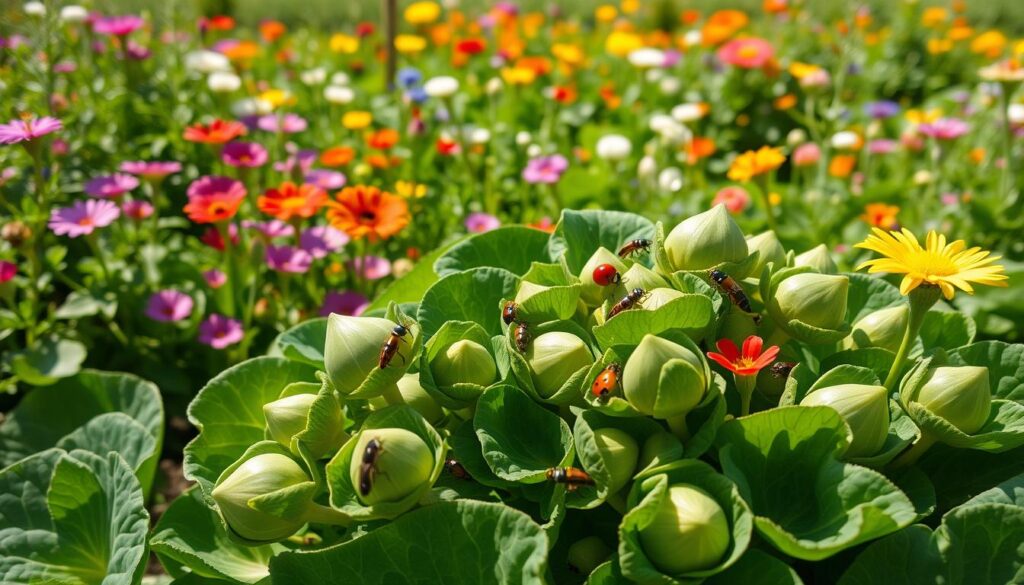
What to Avoid Planting with Brussel Sprouts
When growing brussel sprouts, it’s crucial to consider which plants will negatively impact their health and growth. Your choices can determine the success of your garden yield. Certain plants are known for competing for vital nutrients or sharing similar pests, leading to garden chaos. Here are some key considerations regarding brussel sprouts companion planting tips and what plants to avoid with brussel sprouts.
Plants That Compete for Nutrients
Many plants can compete with brussel sprouts for essential nutrients. Heavy feeders, like corn and tomatoes, can draw nutrients away from your sprouts. Ensuring a balanced nutrient intake is vital for vibrant and productive plants. It’s best to steer clear of:
- Corn
- Tomatoes
- Potatoes
Why Certain Vegetables Don’t Mix
Some vegetables simply do not thrive when planted near brussel sprouts. This could be due to competing for the same resources or having similar pest issues. For example, the presence of cabbage moths can equally affect both brussel sprouts and other brassicas, such as cabbage. Avoid planting:
- Cabbage
- Kale
- Cauliflower
Identifying Pests and Germs
Potential pests can wreak havoc on your brussel sprouts garden, hence knowing what to avoid can save your crop from diseases. Aphids and root maggots thrive near brassicas, leading to common germ infestations. Be vigilant against:
- Aphids
- Root Maggots
- Flea Beetles
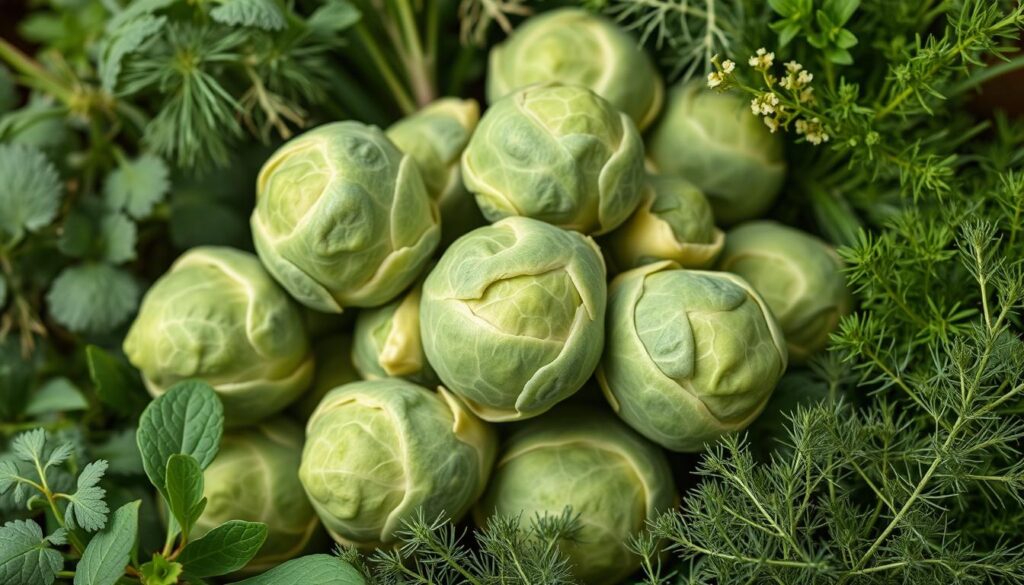
Implementing these planting strategies eliminates stress factors while ensuring healthy growth for your brussel sprouts. By carefully selecting what to plant alongside them, you contribute to the overall success of your gardening efforts.
Seasonal Planting Strategies
Understanding the timing of your planting can significantly enhance the success of growing Brussel sprouts. Implementing effective seasonal planting for brussel sprouts ensures that they thrive alongside equally compatible companion plants. You will discover the best times to plant companion species, the advantages of rotating crops with brussel sprouts, and how to adequately prepare for fall harvests.
Best Time to Plant Companion Species
Timing plays a crucial role when selecting the right moment to introduce companion species. Aim for early spring or late summer for your companion plants. These times align best with the growing season of Brussel sprouts, promoting healthy growth and minimizing competition for sunlight and nutrients.
Rotating Crops for Better Yields
Engaging in rotating crops with brussel sprouts significantly benefits your garden’s overall health. Changing the planting location of your Brussel sprouts season after season helps prevent soil depletion and reduces the risk of pest infestations. This rotation strategy ensures better yields and a robust soil ecosystem.
Preparing for Fall Harvests
As fall approaches, it is essential to prepare your garden for the harvest of Brussel sprouts. Start by monitoring the leaves for signs of readiness. Ensure that all companion plants are appropriately positioned to provide comfort and support to the sprouts during this critical time. A well-organized harvest strategy can lead to a bountiful collection of fresh produce.
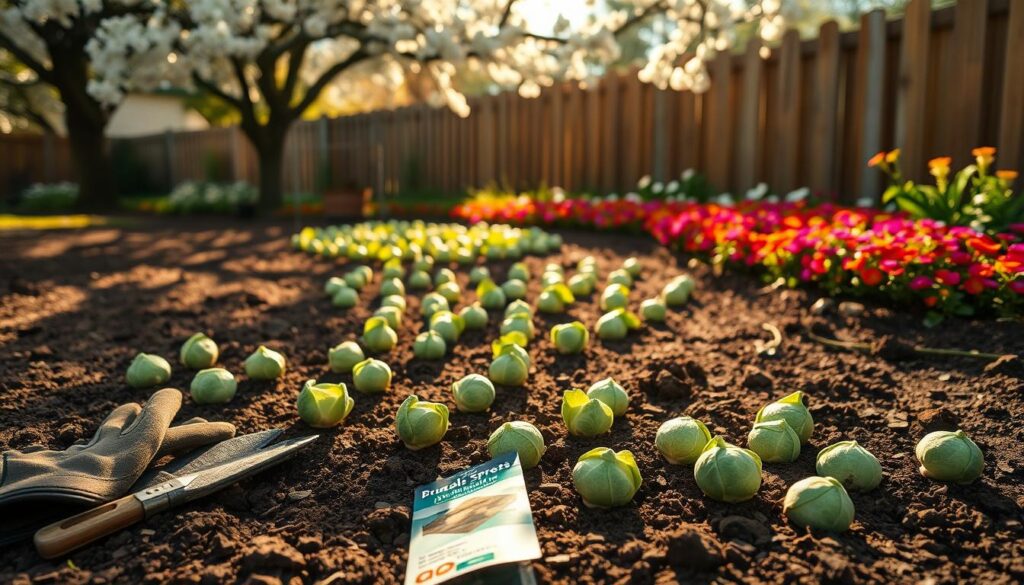
Creating a Companion Planting Plan
When planning your companion planting scheme, focusing on layout ideas for gardening can enhance both productivity and aesthetics. A thoughtful design ensures that your brussel sprouts thrive alongside their companion plants, creating a vibrant and functional garden space.
Layout Ideas for Your Garden
Start by mapping out your garden space, considering sunlight and water accessibility. Group plants with similar needs together, as this creates a more harmonious growing environment. For brussel sprouts, pairing them with compatible companions like aromatic herbs or nutrient-rich vegetables offers a strategic advantage. Review the following layout concepts:
- Grid Formation: A systematic arrangement that allows you to space your brussel sprouts evenly, maximizing sunlight exposure.
- Intercropping: Mix brussel sprouts with faster-growing crops to optimize space and yield.
- Raised Beds: Elevate your gardening area to improve drainage and create defined spaces for companion planting.
Mixing Colors and Textures
Visual appeal plays a crucial role in creating an inviting garden. Consider planting brussel sprouts next to colorful flowers or leafy greens. The contrast between these plants not only enhances the beauty of your garden but attracts beneficial insects. Examples include:
- Bright Marigolds: Their vibrant color complements brussel sprouts while deterring pests.
- Leafy Kale: The texture of kale harmonizes beautifully with the round shape of brussel sprouts.
- Succulent Herbs: Include varieties like basil or cilantro for both aesthetics and culinary benefits.
Keeping a Garden Journal
Documenting your gardening progress aids in refining your companion planting plan for brussel sprouts. A garden journal allows you to track plant health, pest issues, and successful combinations. Include details such as:
- Date of planting each companion species for reference in future seasons.
- Notes on plant growth patterns and any irregularities observed.
- Observations on insect activity and overall soil health.
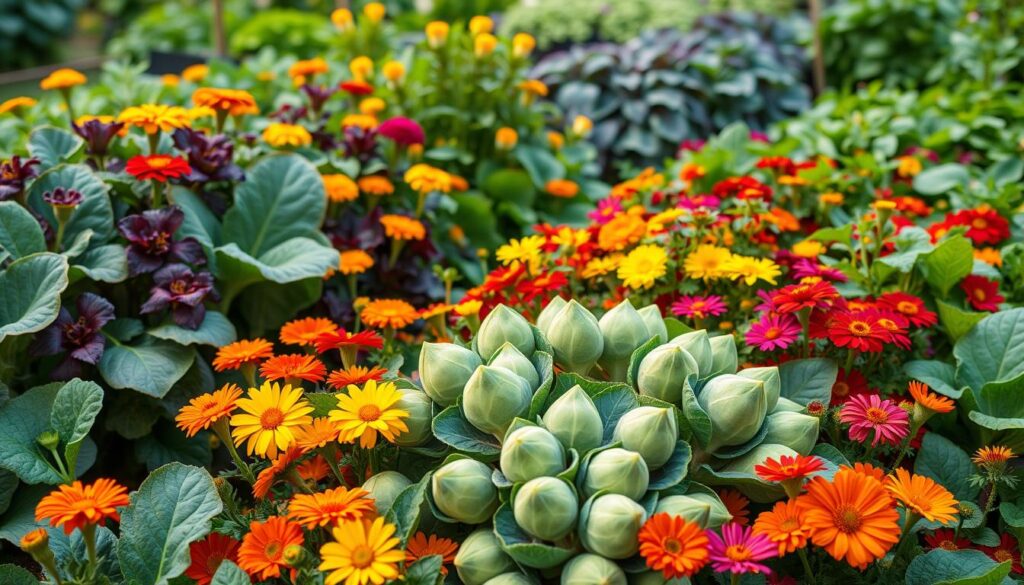
Improving Soil Health for Brussel Sprouts
To cultivate thriving Brussel sprouts, enhancing soil health is crucial. Healthy soil for companion planting not only promotes the growth of your sprouts but also supports adjacent plants. You can achieve this by following a few essential practices that bolster the overall condition of your garden soil.
Adding Organic Matter
Incorporating organic matter is vital for improving soil health for Brussel sprouts. Organic materials such as decomposed leaves, straw, and grass clippings increase nutrient availability and enhance soil structure. This addition aids in retaining moisture, promotes beneficial microorganisms, and fosters root development. Regularly updating your garden with fresh organic matter can have lasting benefits.
Testing Soil pH Levels
Understanding your soil’s pH level is imperative for optimal growth conditions. Testing kits are readily available at garden centers or online. Ideal pH levels for Brussel sprouts typically range from 6.0 to 7.0. Adjusting your soil pH can create a more favorable environment, ensuring nutrients are accessible for your plants while minimizing stress.
Incorporating Compost
Compost is a powerhouse for soil health. By incorporating compost into your garden, you enrich the soil with nutrients, improve structure, and promote microbial activity. This practice not only aids in growing healthy Brussel sprouts but also contributes to healthy soil for companion planting. Regular applications of compost can lead to a flourishing garden ecosystem.
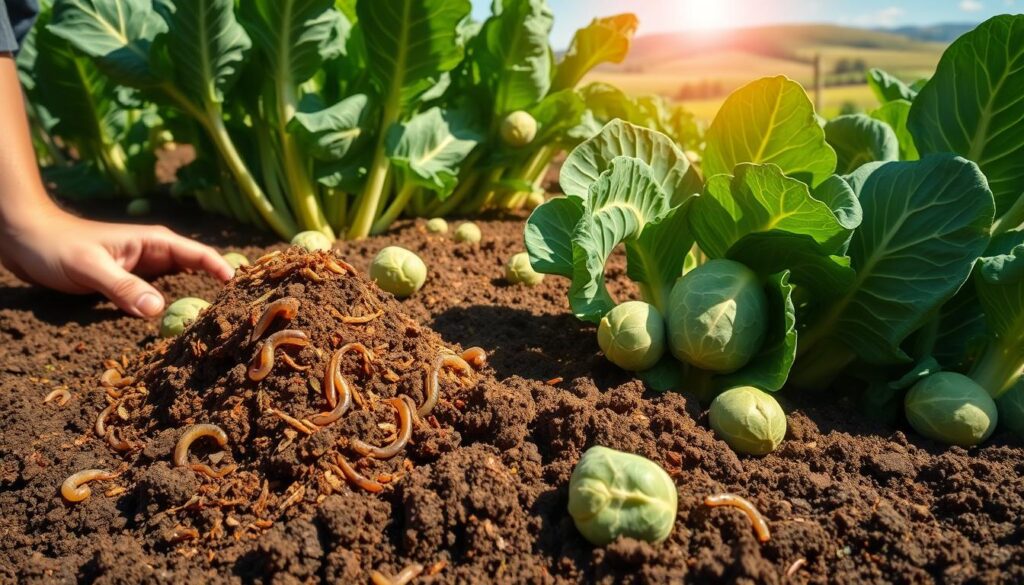
Pest Management with Companion Plants
Managing pests with brussel sprouts becomes easier when you utilize companion plants for pest control. These plants play a vital role in creating an ecosystem that encourages beneficial insects while deterring harmful pests. Understanding how these plants work together can significantly improve your garden’s health.
How Companion Plants Control Pests
Companion plants help manage pests through several mechanisms. Some of them release natural chemicals that repel pests or attract predators. For instance, marigolds emit a scent that keeps aphids at bay. Basil, when grown alongside brussel sprouts, can help deter whiteflies and other invading insects. Such strategies not only reduce pest populations but also support the vitality of your brussel sprouts.
Beneficial Insects Explained
Many companion plants attract beneficial insects, which are essential for effective pest management. Ladybugs, lacewings, and parasitic wasps are common allies in the garden. These insects prey on pests like aphids and caterpillars, helping maintain a healthy balance. By planting flowers such as yarrow or dill, you can draw these beneficial creatures while making your garden more vibrant.
Creating a Balanced Ecosystem
A balanced ecosystem is crucial for sustainable food production. Combining various types of plants fosters diversity, which enhances resilience against pests and diseases. Regularly rotating your crops, including incorporating herbs and flowering plants, can lead to a thriving environment for both your brussel sprouts and their companion plants. By focusing on a holistic approach, you strengthen the overall health of your garden.
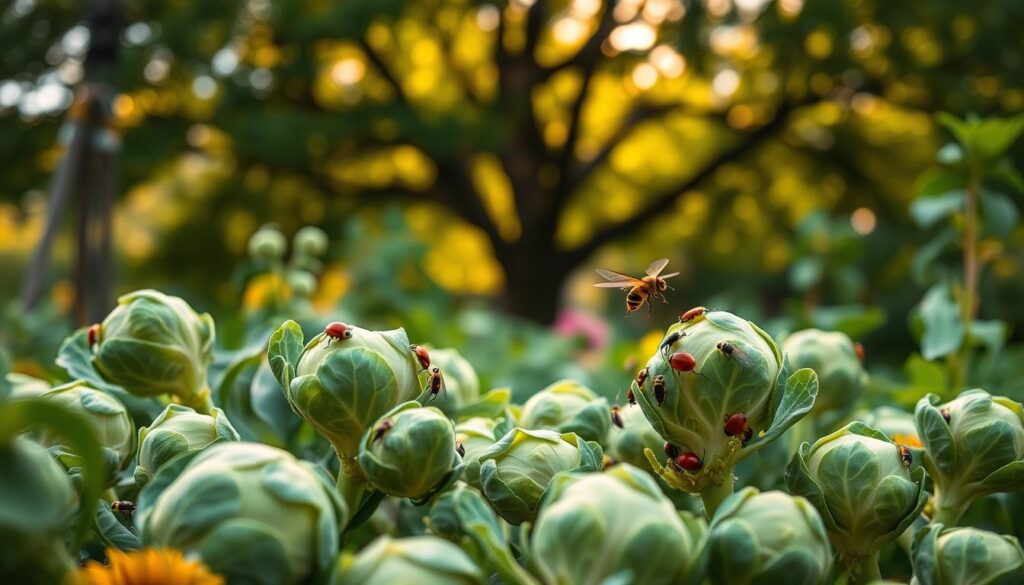
Watering and Care for Companion Planting
Maintaining the right care for your garden is essential for the health and productivity of your plants. When it comes to watering tips for brussel sprouts and caring for companion plants, understanding specific techniques can make a significant difference. Proper watering and fertilizing practices not only encourage robust growth but also promote a thriving ecosystem for your plants.
Watering Techniques for Optimal Growth
Watering your brussel sprouts and their companions requires a balance between moisture and drainage. Prioritize deep watering sessions to encourage roots to grow deeply into the soil. This strategy makes plants more resilient during dry spells. Consider using a soaker hose or drip irrigation system for an efficient watering method. Always check the soil moisture before watering; a simple test is to stick your finger 1-2 inches into the soil. If it feels dry, it’s time to water.
Fertilizing Tips for Companion Plants
Companion plants benefit from regular fertilization to ensure they receive essential nutrients. Choose a balanced fertilizer to support both your brussel sprouts and their partners. Organic options such as compost or well-rotted manure can enhance soil quality and provide necessary nutrients over time. Apply fertilizers sparingly, as over-fertilization can be detrimental to your plants and surrounding soil.
Monitoring Plant Health
Keeping an eye on your plants is crucial for identifying any potential issues early. Regular inspection helps you spot signs of pests or disease. Ensure leaves are vibrant and the plants maintain a strong structure. Implementing good watering tips for brussel sprouts can contribute significantly to their overall health. Watch for yellowing leaves, which may indicate overwatering or nutrient deficiency. By being proactive, you can create a healthier environment for your companion plants.
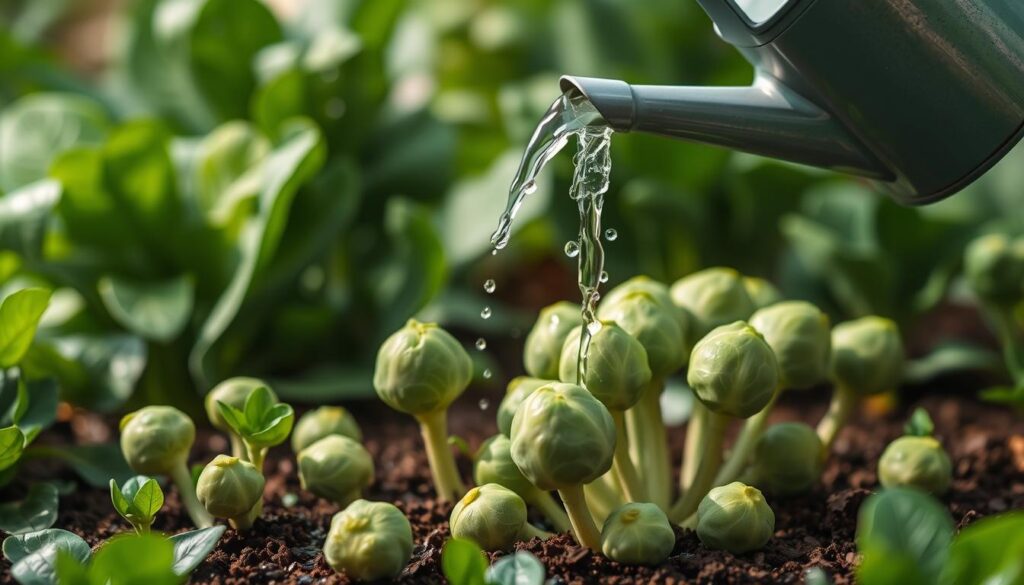
Expanding Your Companion Planting Knowledge
Expanding knowledge on companion planting is essential for any gardener looking to improve their garden’s health and productivity. With various platforms available, you can easily access a wealth of learning resources for gardening. Engaging with fellow enthusiasts can enhance your understanding and application of companion planting techniques.
Resources for Further Learning
Books, online courses, and workshops are fantastic resources for deepening your understanding of companion planting. Consider visiting local libraries or bookstores to find guides written by experienced gardeners. Many universities also offer online classes that focus on sustainable gardening practices.
Community Gardening Groups
Joining community gardening groups can provide practical experience and allow you to share your challenges and successes. These groups often host events where members can exchange tips, seeds, and plants. Networking with local gardeners enriches your learning experience and fosters collaborative gardening efforts.
Online Gardening Forums
Online forums offer a platform for asking questions and sharing insights with a broader audience. Websites dedicated to gardening forums feature discussions on various topics, including specific companion planting strategies. Engaging with experienced gardeners from different regions can expose you to new ideas and techniques suitable for your unique growing conditions.
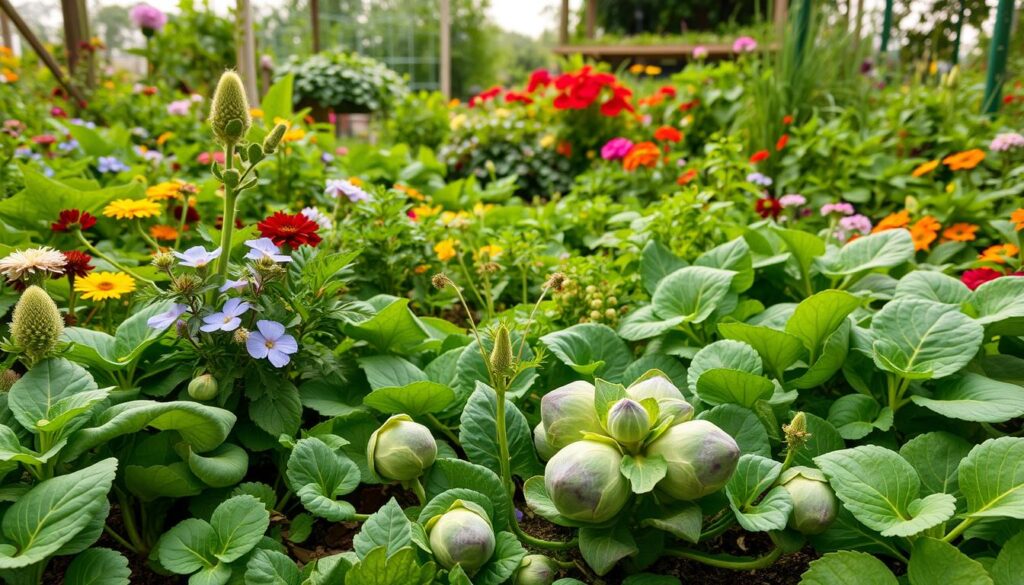
Harvesting and Enjoying Your Brussel Sprouts
Your excitement for harvesting brussel sprouts culminates in a delicious culinary experience. Knowing when to pick these little gems and how to prepare them enhances their flavor and your enjoyment. Take note of key points to ensure the best results.
When to Harvest Brussel Sprouts
Harvesting brussel sprouts occurs when the sprouts are firm, compact, and around 1 to 2 inches in diameter. Look for vibrant green color and ensure they are still attached to the stalk. It’s best to wait until after the first frost; this can improve sweetness. You can start harvesting the lower sprouts first, as they typically mature before the ones at the top.
Tips for Cooking and Enjoying Them
Cooking suggestions for brussel sprouts are abundant, whether you prefer roasting, steaming, or sautéing. Roasting brings out a nutty flavor, while steaming retains more of their nutrients. Experiment with adding garlic, balsamic vinegar, or even bacon for a savory twist. Season with salt and pepper for a balanced taste. Always remember to trim the ends and remove any yellow or damaged leaves before preparation.
Storing Your Harvest Properly
Proper storage minimizes spoilage and maintains freshness. Store unwashed brussel sprouts in a plastic bag in the refrigerator. They can last for about a week. If you prefer to keep them longer, consider blanching and freezing before storing. Doing so retains their flavor and texture, making them ready to use in future meals.
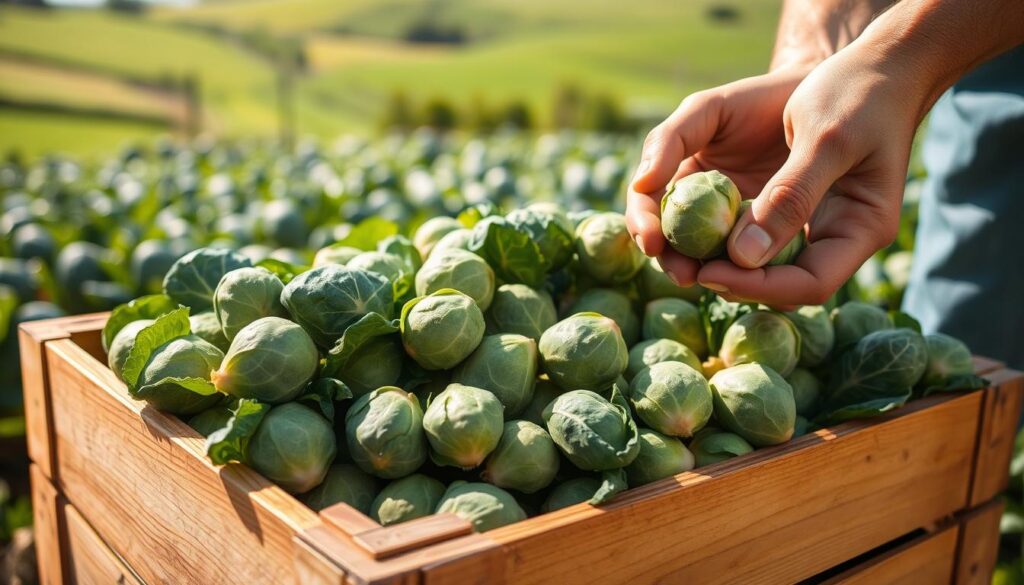
Conclusion: Mastering Companion Planting
As you wrap up your journey into the world of companion planting, it’s essential to recall the key benefits and strategies discussed. Mastering companion planting for Brussel sprouts not only enhances your crop yields but also creates a healthier, more vibrant garden. By selecting the right companion plants, you can naturally improve pest control, boost soil health, and ensure a fruitful harvest.
Let this knowledge inspire future gardening projects that incorporate different plant pairings and seasonal strategies. Experimenting with diverse combinations allows you to discover new synergies in your garden that you might not have anticipated. Consider the needs of each plant and how they can work together to cultivate a thriving ecosystem.
Now is the time to take action! Dive into your garden with confidence and a sense of adventure. By embracing the process of trial and error, you can learn more about your plants and what they need to flourish. So go ahead, implement these insights, and watch your gardening skills bloom into something extraordinary.
